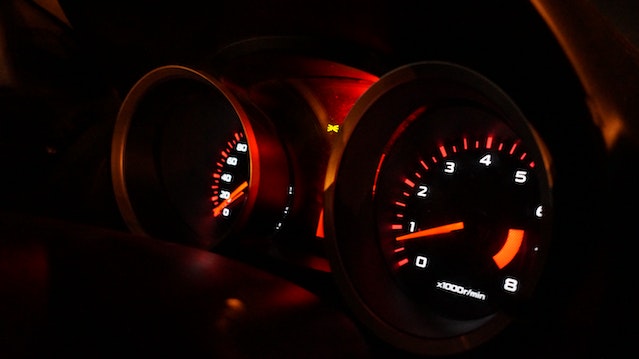A running engine contains a large number of moving components. Can you imagine how many parts are moving inside it? Because of all those rotating shafts and pistons, the engine normally makes soft noises and purring sounds. However, engine ticks and clicks are not among them. The repair could be expensive, so you have a legitimate reason to worry. Any reciprocating part in the engine can cause a ticking noise. There is not always an ominous meaning to ticking or clicking sounds. Knowing the causes and solutions to problems is the only way to stay worry-free. An auto repair shop in Mesa, AZ can help.
Low Oil Level or Pressure
When low oil pressure or low level of oil is coupled with ticking in the engine, it’s bad news. The engine produces a shrill ticking sound when oil doesn’t reach the top part. A timing chain or valvetrain components, such as a camshaft or lifter, is likely to be the cause. Checking the oil level with a dipstick and filling the tank if necessary is a good idea. As soon as the engine is warm and idling, check the oil pressure with a pressure gauge. It is fine if the pressure is between 15 and 20 pounds per square inch.
Exhaust Manifold Leak
Engine ticking occurs when the exhaust manifold leaks at idle and under acceleration. This occurs when a gasket fails or manifold ruptures, allowing exhaust gasses to leak at high pressure. You are still able to drive, so this is not a serious issue. Nevertheless, you should fix it as soon as possible to prevent excessive exhaust gas leaks.
Worn off Valve Train Components
Engine ticking is most commonly caused by valvetrain problems. To ensure that the valves move at a precise distance, several parts work together. As a result of normal wear over time, these devices might be out of shape, causing the ticking sound. It may just be a matter of installing new shims or adjusting the rocker.
Rod Knocking
A major engine issue may be caused by rod knock. It is caused by the rod knocking around the crankshaft when the bearing connected to it wears off or becomes damaged. A metal-to-metal sound is created when the rod knocks around the crankshaft. Upon acceleration, you will hear a rhythmic, loud ticking sound coming from the engine. The speed of the car will cause it to gain speed. It is an expensive repair since the motor needs to be rebuilt.
Bad Spark Plugs
There is a ticking sound coming from the engine when the spark plugs are loose or cracked. After the engine has cooled, make a visual inspection. Cracked ones should be replaced. You can test whether the spark plug is moving after removing the spark plug wire by wagging the plug. The plug needs to be tightened if yes. There are times when the plug is not torqued correctly. If this is the case, you will need to reinstall it according to the owner’s manual.
Spark plugs seal off each of the cylinders. Bad plugs may sometimes strip the cylinder head threads. If that happens, you have to either repair or replace the damaged cylinder heads.
If your car is making a clicking sound, let an auto repair shop in Mesa, AZ help you. Call us today to make an appointment for service.
